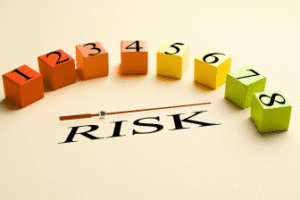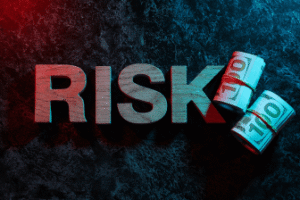
Why Choose a Risk Management Course After Graduation?
Why Choose a Risk Management Course After Graduation?
Every organisation, regardless of size or industry, faces uncertainties that can affect its goals, reputation, and profits.
This is where risk management becomes vital — identifying, analysing, and mitigating potential threats to business success.
For graduates seeking a stable and rewarding career, enrolling in a risk management course can be a turning point.
It blends academic learning with business strategy, preparing you for leadership roles that safeguard an organisation’s future.
Knowledge of Risk Management
Risk management involves systematic steps to identify, assess, and reduce potential threats to minimise negative outcomes. Experts in this field work across finance, banking, insurance, healthcare, logistics, and technology to ensure business stability. A structured risk management course covers areas like financial, operational, enterprise, credit, and market risk, plus compliance.
Graduates learn analytical thinking, data-backed decision-making, and effective crisis response.
Why Take a Risk Management Course After Graduation?
After graduation, most students seek a career offering both growth and long-term stability.
A risk management course builds the technical and strategic skills employers value globally.
Below are some strong reasons to pursue it after completing your degree.
1. Rising Demand for Risk Professionals: Businesses today face constant uncertainty due to economic, political, and technological shifts. Because of these challenges, companies are investing heavily in skilled risk professionals. Earning a Risk Management Diploma or Certificate Course helps you stand out in a competitive market.
As corporate governance gains focus, banks, insurers, consultants, and start-ups actively hire trained risk graduates.
2. Professional Growth and Skill Development: A risk management course deepens your understanding of how risks affect business performance. You develop analytical, quantitative, and strategic problem-solving skills. Topics include financial instruments, risk modelling, data interpretation, and decision-making under uncertainty. These skills are transferable across compliance, auditing, enterprise strategy, and finance.
Graduates often progress faster into managerial or consulting roles than their peers.
3. Industry-Relevant Curriculum: Courses like the PGDRM (Post Graduate Diploma in Risk Management) by GRMI (Global Risk Management Institute) offer strong industry relevance. The curriculum integrates theory with case studies, simulations, and practical projects. GRMI’s PGDRM provides direct exposure to frameworks used by professionals in top corporations and financial institutions. Students gain practical understanding of risk models, regulatory standards, and receive mentorship from industry experts.
4. Global Career Scope: Risk management expertise is in demand worldwide. Every organisation, regardless of location, needs professionals who can predict and prevent potential threats. Completing a Risk Management Certification India course opens international career opportunities. Many graduates work abroad in multinational banks, consulting firms, and regulatory bodies. Globally, risk professionals are key decision-makers ensuring compliance and operational stability.
5. Job Security and Competitive Pay: Risk management offers excellent job security and high earning potential. Demand for qualified professionals continues to grow across industries. Top roles include Risk Analyst, Risk Consultant, Compliance Officer, and Enterprise Risk Manager. As you gain experience in risk modelling and assessment, your career value increases across sectors.
6. Critical and Strategic Exposure: Risk professionals work closely with business leaders and decision-makers. They gain exposure to strategic business operations and key decision-making processes. Unlike routine roles, this field promotes critical thinking, foresight, and logical reasoning. It helps professionals identify opportunities within risks and understand business operations at a larger scale. Graduates with these insights often advance into leadership positions over time.
What Do You Learn in a Risk Management Course?
A Risk management certificate course or diploma generally covers the following subjects:
- Risk and Governance Principles
- Quantitative Analysis and Financial Risk
- Enterprise and Operational Risk
- Risk Forecasting and Modelling
- Corporate Compliance and Audit
- Insurance and Credit Risk
- Business Continuity and Crisis Management
These courses combine theory with practical exposure.
By graduation, students are well-equipped to apply their learning in real business environments.
Career Opportunities After a Risk Management Course
After completing a graduation and risk management specialisation, you can explore various job options:
- Risk Analyst: Evaluates and identifies threats to operations and finances.
- Credit Risk Officer: Assesses borrower profiles and manages credit exposure.
- Operational Risk Manager: Ensures compliance and safety in daily business operations.
- Compliance Officer: Oversees adherence to internal and external regulations.
- Enterprise Risk Manager: Designs and implements strategies to reduce organisational risks.
- Consultant or Auditor: Helps clients identify and address potential business risks.
Graduates with certifications like Risk Management Certification India gain a competitive advantage in corporate and consulting roles.
Why GRMI Is a Leading Choice
GRMI is a recognised leader in professional education and a pioneer in risk management training.
Its PGDRM programme stands out for its:
- Industry-aligned curriculum
- Live projects and case discussions
- Networking with senior risk professionals
- Career guidance and placement support
- Global understanding of risk frameworks
A Risk Management Diploma from GRMI builds confidence, credibility, and competence to pursue top roles in audit, risk, or compliance.
Final Thoughts
Pursuing a risk management course after graduation is a valuable investment in your future. It gives you specialised skills that ensure professional stability and make you a strategic asset to any organisation. Whether you plan a career in finance, consulting, or governance, structured programmes like PGDRM at GRMI equip you with the expertise to thrive in a dynamic global market.
FAQ’s
Q1: Who can apply for a Risk Management Course after graduation?
Ans: Any graduate from commerce, finance, economics, management, or engineering can apply.
Interest in analytics, finance, and business decision-making is essential.
Q2: What is the duration of a Risk Management Diploma?
Ans: The average duration ranges from six months to one year, depending on the institution. GRMI’s PGDRM offers a full one-year programme with both theory and practical learning.
Q3: Does a Risk Management Certificate Course help in career growth?
Ans: Yes. A recognised Risk Management Certificate Course adds credibility to your profile. It demonstrates expertise and increases your chances of selection in banking, consulting, and corporate governance roles.
For any queries please fill the form
You may also like

Which careers are truly safe from layoffs in 2026?

What Are the 3 Types of Credit Risk?


